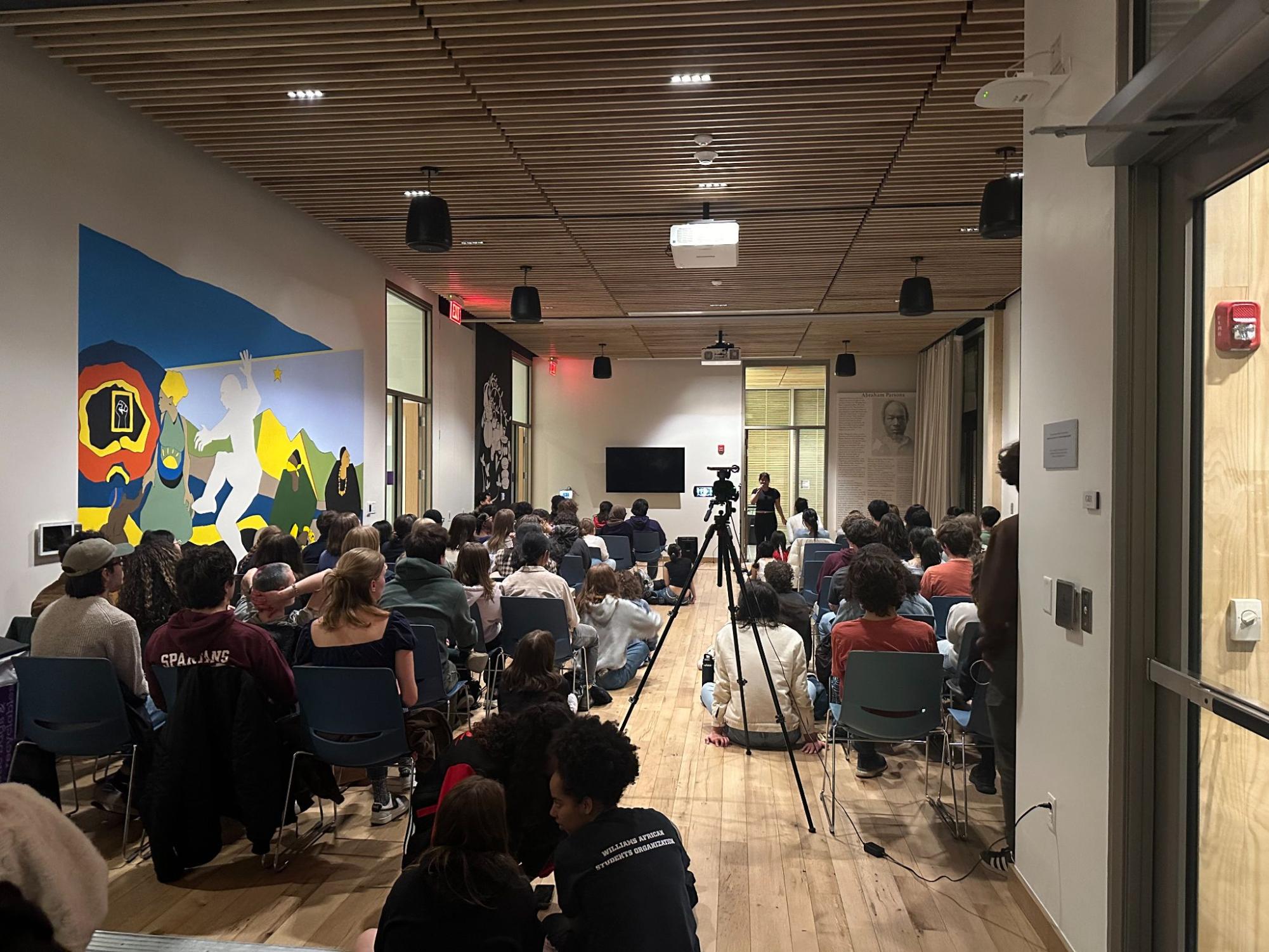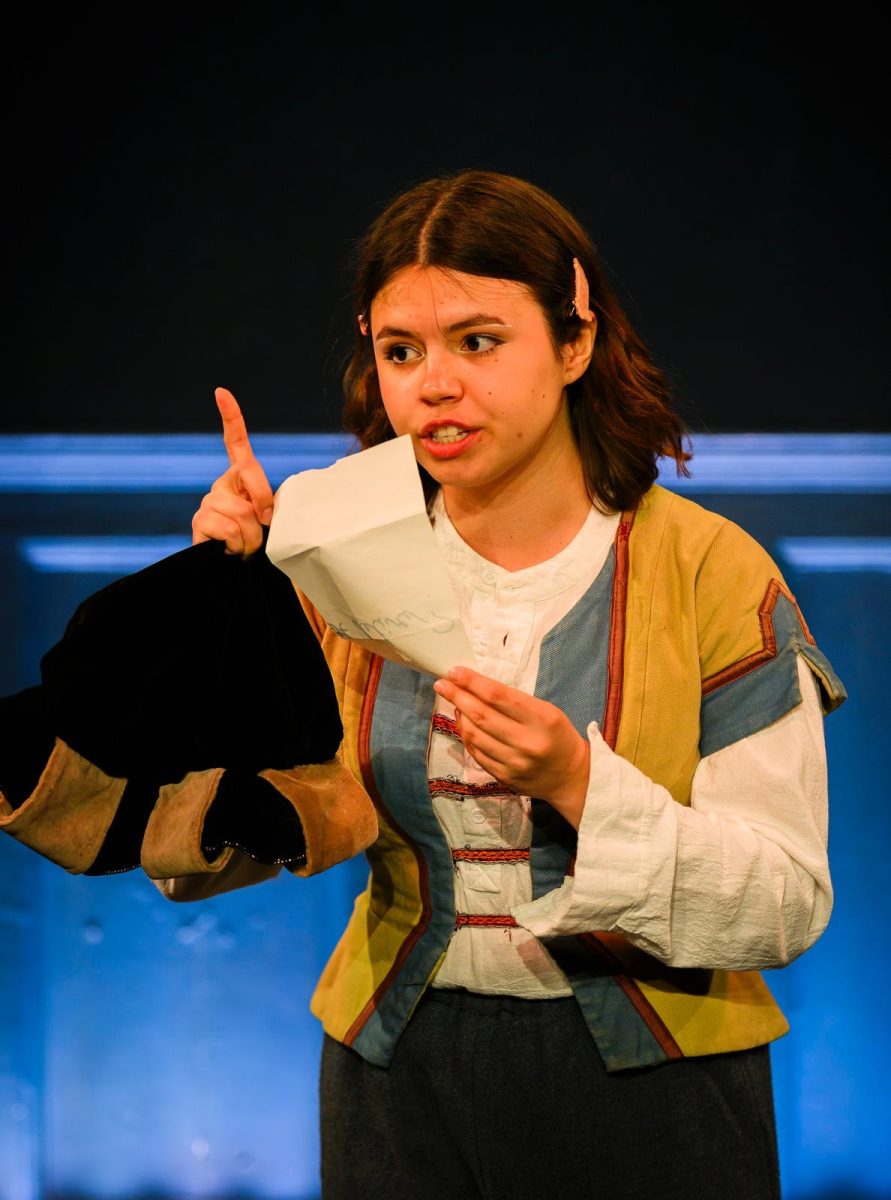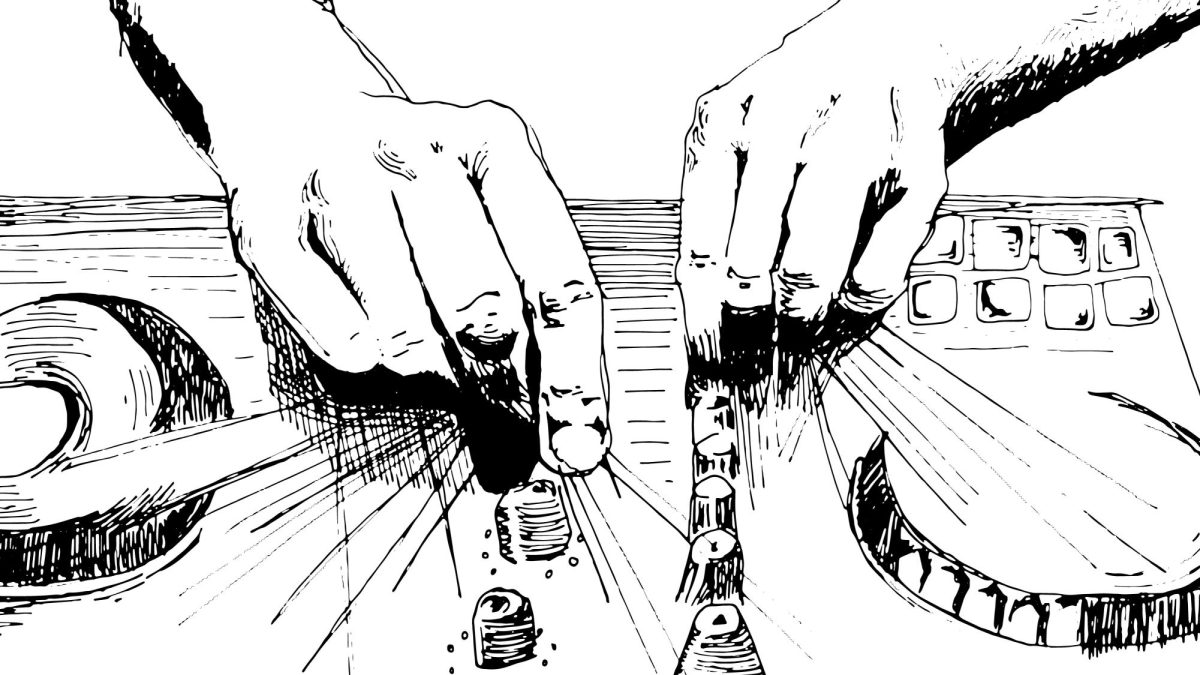
Although many may consider comedy at the College to be nothing more than a casual activity — something to attend on a Friday before a night out on Hoxsey — the latest People Against Comedy (PAC) show was a cathartic experience for many. Hosted at the Davis Center in a collaboration between PAC and the Minority Coalition (MinCo), the event brought historically marginalized voices to the College’s comedy scene through a series of energetic stand-up sets.
Some students of color describe the College’s comedy scene as a “white space.” In February, managing executive of PAC Shenba Vairavan ’24 wrote in an op-ed for the Record that she expected “the College’s comedy was going to be as white as its winter months” when she left for the Williams-Exeter Programme.
PAC is a no-cut student group that hosts monthly stand up nights and a sketch show at the end of every semester. Though it is intended to be an accessible space, it has historically been predominantly white, Vairavan wrote in her op-ed. The MinCo x PAC stand-up night was meant to institutionalize an event designed for people underrepresented in the comedy scene at the College.
Due to Vairavan’s grievances with the comedy community’s lack of diversity, she was the perfect person for MinCo chair Palvasha Khan ’25 to approach for collaborating on a comedy event. (Khan, a managing editor of the Record, was not involved in the writing or editing of this article.)
“Since sophomore year of college, I’ve been like, ‘We should just collaborate with the Davis Center,’” Vairavan said. “There was always some level of pushback. One, because I didn’t really have a lot of power [within PAC], so to speak. Two, I think people were very worried that it would present itself as ‘trying to look good optically.’”
To foster a more inclusive comedy community at the College, Vairavan believes student-comedians of color need the opportunity to make jokes about their race and white students need to get used to hearing jokes about race.
Vairavan noted that the academic environment of higher education has intellectualized race such that white students may have trouble discussing it outside of the classroom. The College is no exception.
“I think white people are okay getting their DPE [Difference, Power, & Equity] requirement and talking about ‘land back’ and ‘how bad systemic racism is,’ and then when a person of color makes a joke, they feel and have created this false need of having [to get] permission [to laugh],” she said.
Jackson Small ’24, who opened the MinCo x PAC event, agreed with Vairavan. “There are certain jokes that would kill with an audience with people of color, but not with white people,” he said. “It’s almost one of those, ‘You feel too uncomfortable to laugh’ sort of things.”
“Even during the show a lot of [performers] were like, ‘It’s okay, you can laugh at that,’” Small said. “Considering that we were in the Davis Center and this was a MinCo x PAC stand-up night, it definitely was still a pretty white audience.”
A “pretty white audience” may seem counterintuitive to the purpose of the event, but Vairavan felt it was a good exercise in exposing white audiences to race jokes.
“One of the easiest ways to give people the opportunity to feel comfortable making jokes about their identity — but not feel like their identity is the joke — is by making that a normal occurrence,” she said. Essentially, dismantling white discomfort with race jokes takes practice.
“The reason people feel comfortable discussing race in hyper-academic spaces is that they have practiced discussing race,” she said.
It may seem strange to center white audiences in discussions about increasing diversity in the College’s comedy scene, but eradicating discomfort from this audience would allow comedians of color to stop limiting their jokes, Small said. “The whiteness of the space does limit a lot of what you can say, or what you feel won’t be interpreted wrong by white people, because sometimes you’ll say something, and then they’ll tell you that it’s racist,” he added. “Well, I think I maybe have the authority on that.”
For Esther Eboh ’26.5, who described their set as exploring “the male loneliness epidemic and my support of violent women,” the event was a space to feel comfortable making the jokes they wanted.
“I felt like this specific set, so many things aligned for me,” Eboh added. “I wasn’t worried about it. I wasn’t nervous about it. I was so sure of the content of it and my delivery of it… It just flowed so easily. I knew: ‘These are my people. This is how I’m going to say this.’”
Mariel Baez ’26, a student who performed for the first time at the event, expressed a similar sentiment. “It was definitely helpful that women of color were spearheading the initiative to get the PAC x MinCo show on the road,” she said. “It felt like a much more accommodating, welcoming space.”
This will not be the last MinCo x PAC show, which students hope will continue to contribute to making the comedy scene a more diverse place.
“I think this type of space should exist consistently so more people who are not of the major demographics on this campus — who are non-white — can do [comedy] too [in] that white space” Eboh said.







